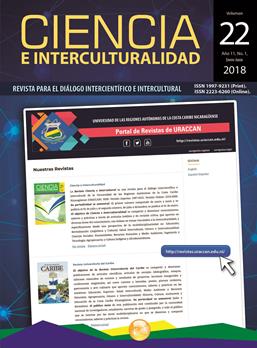Diagnosis of the artisan production process of the ñañho woman in Querétaro, México
DOI:
https://doi.org/10.5377/rci.v22i1.6550Keywords:
Crafts, Gender, Indigenous, Production processAbstract
The present investigation has documented the process of handicraft production elaborated by ñañho women to propose a culturally satisfactory and more profitable organizational strategy. It is assumed that ñañho artisan women could achieve better working conditions if they have a clear awareness of all the elements that intervene in their productive process; besides, that it would benefit from structuring its productive process as a formal enterprise, since it could be benefited from government programs aimed at artisanal production. As methodology, 1 interview with a key informant, 1 group interview and a survey of 24 indigenous women were carried out. In this regard, in fieldwork it is observed that the division of labor occurs mainly by gender and ages within the family nucleus, there are great differences in the production and labor process from the informal sector that is the rule. Based on the above, it is concluded that the formation of a formal productive process cannot be established immediately, but will require prior community integration intervention.Downloads
Download data is not yet available.
Abstract
1299
1299
PDF (Español (España)) 731
HTML (Español (España)) 235
EPUB (Español (España)) 215
Resumen (Audio) (Español (España)) 182
Abstract (Audio) 185
HTML (Español (España)) 235
EPUB (Español (España)) 215
Resumen (Audio) (Español (España)) 182
Abstract (Audio) 185
Downloads
Published
2018-10-05
How to Cite
Alonso Chombo, R., Romero Zepeda, J. A., & Cárdenas Álvarez, X. P. (2018). Diagnosis of the artisan production process of the ñañho woman in Querétaro, México. Ciencia E Interculturalidad, 22(1), 48–58. https://doi.org/10.5377/rci.v22i1.6550
Issue
Section
Indigenous and Black Culture
License
Copyright © (URACCAN)

This journal is licensed under a Creative Commons Attribution-NonCommercial-NoDerivatives 4.0 International License.
This license allows others to download the works and share them with others, as long as their authorship is acknowledged, but they can not be changed in any way nor can they be used commercially.




